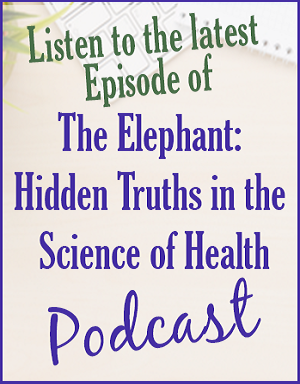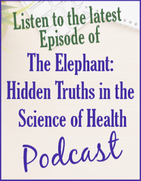Larry A. Law
Refined Salt and Goiter
At the atomic level, refined salt is composed of a positive sodium ion bonded to a negative charged chlorine ion (NaCl). In 1924 the government required iodine be added back to refined salt because of a goiter epidemic. Goiters are due to iodine deficiency. The public learned the hard way that removing minerals from real, unrefined salt was not a good idea. When iodine was added back into refined salt, the result cured the epidemic of inflamed thyroids as iodine was essential in the production of thyroid hormone. But the question remained: are we hurting ourselves by not including the other 60+ minerals? Potassium and Sodium Balance Current medical thinking insists that cardiovascular disease is associated with too much sodium and that reducing salt intake will help lower that risk. However, evidence shows that having the correct potassium to sodium balance heightens the risk of hypertension and heart disease much more than high sodium alone. Potassium is used as an electrolyte (a substance in solution that conducts electricity) in the body. Like magnesium, potassium works to relax the walls of arteries, keeping muscles from cramping; it lowers blood pressure and the risk of stroke. Western diets are notoriously low in suggested levels of potassium. It is generally recommended that you consume five times more potassium than sodium, but most Americans ingest twice as much sodium as potassium. When thinking about foods rich in potassium, people often think of bananas. They are excellent, but raisins and apricots, beans and lentils, sweet potatoes, winter squash, spinach, broccoli, and avocados are also excellent sources. The element potassium is usually found in food in the form of potassium citrate or potassium malate. The compound found in most supplements--potassium chloride--is not the form that promotes bone health or lean muscle mass as you age.
Iodine
Sodium, potassium, magnesium and iodine are vital minerals needed by the body. Sodium is best paired with potassium, which occurs naturally, along with the other trace minerals in real, unrefined salt. In central Utah nature has created a huge salt deposit from an evaporated ancient sea bed. This salt includes roughly 18-23 micrograms of naturally-occurring iodine in each ¼ teaspoon. That's about 10% of the Institute of Medicine's recommended daily allowance of 150 micrograms. Getting a balance of all trace minerals as Mother Nature orchestrated it is an essential first step towards improving overall health. Refining and processing food never yields the benefits nature brings to the table. Our bodies are much more receptive to natural sources of iodine than they are to artificially iodized salt. It is good to include iodine-rich foods (seaweed, fish, dairy, eggs, chicken, beef liver) and/or quality iodine supplements as an important step for thyroid health.
MSG
It is important to replace refined salt with real, unrefined salt. But it is also important to replace processed food with real food too. When the false theory came out that salt was bad and contributed to high blood pressure, many food manufacturers reduced the amount of refined salt they added to their products, but replaced it with monosodium glutamate (MSG) instead. This flavor enhancer is associated with a plethora of health issues: obesity, headaches, fatigue and depression. MSG has the ability to overexcite neurons in the brain and create neurological disorders like Alzheimer's, Parkinson's, and ALS (Lou Gehrig's disease). Remember that MSG can masquerade behind other descriptors such as hydrolyzed vegetable protein, yeast extract, soy extract, protein isolate, natural flavor, gelatin, calcium caseinate, monopotassium glutamate, etc. It is even used as a stabilizer in certain vaccines like influenza (FluMist), MMRV (ProQuad), Varicella (Varivax), and Zoster (Shingles-Zostavax).
Bottom Line
Throw out the refined, processed salt and get real, unrefined salt so you have the full sweep of minerals your body needs. Eliminate processed foods and add real foods rich in potassium, calcium, magnesium, iodine and sodium. The body recognizes minerals presented in a food matrix. The synthesized, lab-created inorganic versions are not absorbed at anywhere near the levels they are when coming from nature. Real food will always support you and enable optimal health. Remember: there's nothing natural about being synthetic!
0 Comments
Leave a Reply. |
BlogArchives
July 2024
Categories
All
|
© Angie's Option GRM. All rights reserved.








 RSS Feed
RSS Feed

